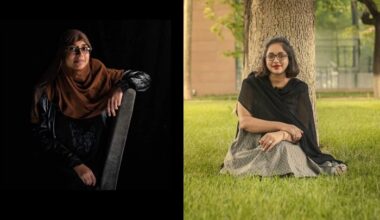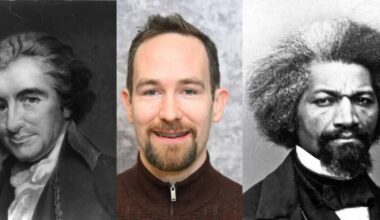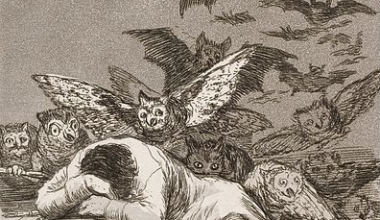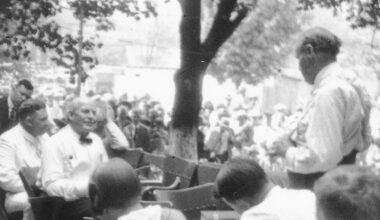There’s always a cloud in the sky. Sometimes they pass in fleeting wisps. Sometimes they gather into something impossible to ignore. And sometimes, there’s nothing to see, except a vague feeling that something isn’t right. As if you’re wearing moral shoes that rub in all the wrong places. Not visible or dramatic, but equally impossible to ignore. This short essay is about that friction.
Not the shock of obvious evil, but the subtle discomfort of everyday moral dilemmas. The moments of choice that don’t tear us apart, but quietly undermine us if we refuse to listen. The static from which clarity can emerge, if we know how to listen. I won’t be discussing the well-known tools like meditation to address this, but rather something else: moresprudence.
Moral friction isn’t a symptom
When we hear the word ‘ethics’, we tend to think of lofty debates about good, evil, justice, guilt, and responsibility. But most people rarely get that far in everyday life. Unless something major happens that forces them to. Or unless they make space for it.
Ethics isn’t always about taking a principled stand. Sometimes it’s just about speaking up—or not—when someone crosses a line. Going along with the group even though something doesn’t sit right. Knowing someone’s being excluded and choosing not to address it. The small choices. The awkward silences. Often, it’s not that we don’t know what’s right. It’s that the right thing often speaks in multiple voices.
The heaviest moral weight is rarely in the act itself. It lies in the aftershocks. The thoughts that keep returning. The feeling of having acted out of alignment with yourself. That’s where ethics begins for most of us. Not in dogma, but in friction. What chafes, asks for attention. What we ignore tends to grow misshapen.
Moral friction isn’t a sign of weakness, but of sensitivity. The person who never experiences moral conflict is often disconnected from their inner world, or so conditioned that the friction no longer even reaches consciousness. That makes moral discomfort not a problem, but a point of entry. A possibility.
Acquainted with the unfinished and searching
Somewhere in that foggy field of daily friction lies something deeply valuable, namely, moresprudence. A term that echoes ‘jurisprudence’ but for ethics. Where legal scholars interpret the law, morally attuned guides cultivate sensitivity to ethical nuance. Moresprudence isn’t something you learn from a book, although many tools can support it. It grows in your relationship with yourself, with others, and with the situation at hand.
It’s a practice. Not a system or formula. Practising moresprudence means developing the capacity to resist the temptation of black-and-white thinking in grey areas. The art of standing in confusion without losing yourself. Of carrying discomfort without rushing to fix it.
Moresprudence requires a mix of reflection, experience, empathy, and the courage not to avoid the uncomfortable. It calls for familiarity with the tentative, the unfinished, and the searching. In that way, it becomes a form of existential craftsmanship. Where technical skills aim to solve, moral intelligence seeks to question, deepen, and embody.
A space where clarity can emerge
Moral clarity is often something very different from being morally right. Our modern culture has turned ethics into a kind of identity politics: you’re either good or bad. There’s little room for questioning, doubting, or sighing. Moresprudence reopens that space. Not to become vague, but to become more precise than right-or-wrong allows.
Instead of asking what the right thing to do is, moresprudence asks: what is actually happening here? And how did we get here? It invites us to suspend judgment. To practice constructive slowness. Not to get stuck, but to see clearly. Your judgement only becomes meaningful once you’ve understood the full complexity of the situation. And that takes time.
It requires discernment. There’s a difference between moral hesitation and indecision. Between having a conscience and being lost in doubt. Moresprudence isn’t a romanticisation of not knowing. It’s a conscious choice for a space in between, where clarity can unfold. In a culture that worships speed and certainty, this is a quiet act of moral courage.
Deliberation as a ritual of humanity
If this resonates, you’ll also know that talking helps. Not to persuade, but to deliberate. Constructive moral conversation is rarer than you might think. Not because it’s difficult, but because we’ve forgotten how. We’re conditioned to justify decisions. To protect ourselves. To score points. But deliberation asks something else: openness, precision, and language. It asks us to question assumptions. To slow down. Not to use the other as an echo chamber, but as a mirror. Most of all, to use our inner voice as a mirror.
It’s not answers that open up space. It’s questions. What is it in this situation that keeps troubling you? What did you want to say, but didn’t? What would you do if you were completely free? The answers often unlock something we’ve known for a long time but never said aloud.
Moral deliberation isn’t just for meetings or work situations. It’s something you can do with a friend, a partner, or a philosopher. It’s a way of being together that doesn’t require the other to be a therapist or guru, but simply a fellow seeker.
Deliberation is a ritual of humanity. A place where the soul can breathe. And that, above all, is why I love it. In the higher consciousness community, there are too many people meddling in others’ psyches when they absolutely should not.
An external issue with an internal undercurrent
A moral dilemma rarely stands on its own. It’s rooted in upbringing, beliefs, and old loyalties. Anyone who wants to go deeper must be willing to acknowledge their inner world as the source of the dilemma. What’s really driving you? Why is this especially hard for you? What patterns keep repeating in your life?
Often, what seems like an external issue turns out to have an internal undercurrent. For instance: my colleague keeps overruling me. The internal current: I feel invisible, and I know that feeling from earlier on. The question then shifts from what should I do to what in me wants to be seen? And: what are my options?
Self-inquiry isn’t a luxury. It’s a necessity for anyone who wants to follow their moral compass over time. Repeating patterns are rarely random. They’re a recurring call to awareness. An invitation to take responsibility, not in the sense of guilt, but of presence.
Self-knowledge as the gateway to ethical living
This is where philosophical conversation enters the frame. Not therapy or coaching, but a space for thinking. For feeling through thought. For questioning your narrative. For taking yourself intellectually and existentially seriously. Many people think philosophy belongs in books. But it’s also a way of being present in your own life. It’s the willingness not to chase quick solutions, but to remain with the tension. That’s where the key lies.
It’s not necessarily an intellectual exercise, but one of courage and clarity. Of rediscovering what you already know, buried under habit, loyalty, or shame. Self-knowledge is not an end in itself. It’s the foundation of moral clarity. When you know yourself, you better know your boundaries. What truly matters. Which choices resonate inwardly. Introspection is not the endpoint but the doorway to an ethical life.
Freedom in relation to what it encounters
Many claim that moral clarity never emerges in isolation. I disagree. I don’t believe you can only do right by yourself once you know another. Self-knowledge can arise without another to mirror you, though this is not the case for everyone. What matters is that life is about relationships. That’s the paradox: we need others to arrive at autonomous choices. An autonomy not born of resistance or separation, but of awareness.
That’s why moral deliberation with others can be so deeply fulfilling, in relationships, organisations, and society. The moral person longs to be a relational being. Not because they’re dependent, but because they realise their freedom in relation to what they encounter. Few people want to live as thinkers alone on a deserted island. I’m one of them. But still, there’s life.
In this age of individualisation, the desire to act relationally is more radical than it may seem. To become morally mature by not avoiding the other. Not just by understanding them, but by being moved. Sometimes painfully so. With perceptiveness. This is ethics with exposed nerve endings.
In the human search
Moral clarity doesn’t begin with grand ideals. It starts with yourself. With what bothers you. With that small voice whispering that something is off. Take that seriously. Not by jumping into action, but by sitting down. Alone or with someone you trust. Ask questions. Ask what’s really going on. Why it touches you. What you would do if you were radically honest.
Sometimes, beginning also means ending. Stopping the compensation. The pleasing. The pretending it’ll pass. Moresprudence requires slowing down. The willingness to let the storm rage without tearing down your inner house. There, in the silence, something can emerge that no quick fix can offer, namely, insight.
We live in a time that shouts. Where opinions have become weapons. Where nuance is suspect. That’s precisely why it’s revolutionary to be gentle. To take your time. To think, feel, and listen. To admit you don’t know yet, but want to understand.
Moral clarity is not a state of being. It’s a path that begins with something that rubs. That whispers. That keeps returning. Those who learn to listen to that subtle discomfort hold the key to transformation. Not of the world, but of themselves. And that’s always where it begins.
Maybe that is the most beautiful gift moral development offers us. Not the certainty that we’re doing good, but the trust that we are present. That we are perceiving. That we are listening. And that in this human searching, we’re restoring something fundamental, namely our relationship to ourselves, to one another, and to life itself.









Your email address will not be published. Comments are subject to our Community Guidelines. Required fields are marked *
Donate